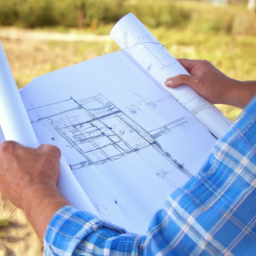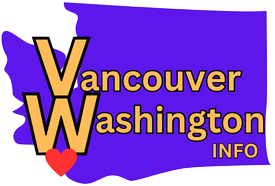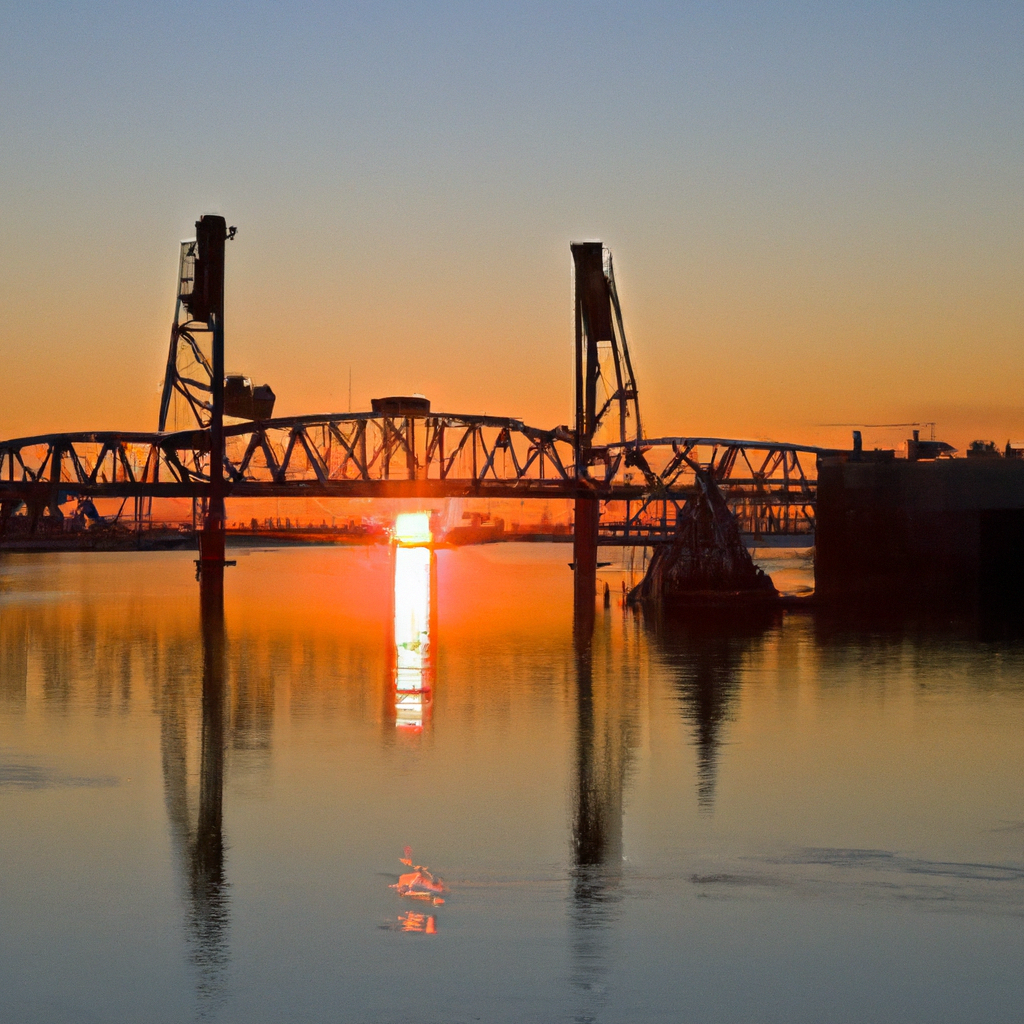
How Vancouver Washington Got It’s Name
Imagine yourself transported back in time to the vibrant city of Vancouver, Washington. As you stroll through the charming streets and soak in the breathtaking views, have you ever wondered how this captivating city got its name? The story behind it is fascinating, weaving together rich history, strategic planning, and a touch of serendipity. Join us on a journey back in time as we uncover the origins and secrets of how Vancouver Washington got its name.
Table of Contents
ToggleIndigenous Presence in the Area
First Nations Tribes in the Region
Before European contact, the Vancouver area was inhabited by several First Nations tribes who had lived on these lands for thousands of years. These tribes, including the Chinook, Klickitat, Cowlitz, and many more, thrived in this region due to its abundant natural resources and favorable climate. They had developed unique cultures, languages, and traditions that were deeply connected to the land and waterways.
Importance of Indigenous Culture
The indigenous cultures in the Vancouver area hold immense importance in the history and identity of the region. Their rich heritage, art, storytelling, and spiritual practices provide a unique perspective that shapes the local community. Indigenous cultures serve as a reminder of the deep roots and resilience of the people who have called this land home for centuries. It is crucial to honor, respect, and preserve indigenous culture to ensure a diverse and inclusive society.
European Contact with Indigenous Peoples
The arrival of European explorers marked a significant turning point in the history of the Vancouver area. Explorers such as James Cook and Bruno Heceta encountered the indigenous peoples during their expeditions in the late 18th century. These encounters led to trade and cultural exchange, but unfortunately, also brought diseases and conflicts that had devastating impacts on the indigenous populations.
Exploration and Settlement
Early European Explorers
In the late 18th century, European explorers began to venture into the Pacific Northwest, seeking new trade routes, resources, and knowledge of the uncharted territories. Explorers like James Cook and Bruno Heceta sailed along the coast, collecting information on the geography, currents, and indigenous peoples they encountered. Their explorations laid the foundation for further European interactions with the region.
Lewis and Clark Expedition
One of the most famous exploration expeditions in the Vancouver area was the Lewis and Clark Expedition. In 1805 and 1806, Meriwether Lewis and William Clark led a group of explorers on a journey from the Mississippi River to the Pacific Ocean. As they passed through the Vancouver area, they encountered and documented the local indigenous peoples, expanding the knowledge of the region for future settlers.
Hudson’s Bay Company
The Hudson’s Bay Company played a crucial role in the exploration and settlement of the Vancouver area. Established in 1670, the company was granted a royal charter to trade in the territories of present-day Canada and the United States. In the early 19th century, the company set up forts and trading posts in the Pacific Northwest, including Fort Vancouver. These trading posts served as centers of commerce and interaction between European settlers and the indigenous populations.
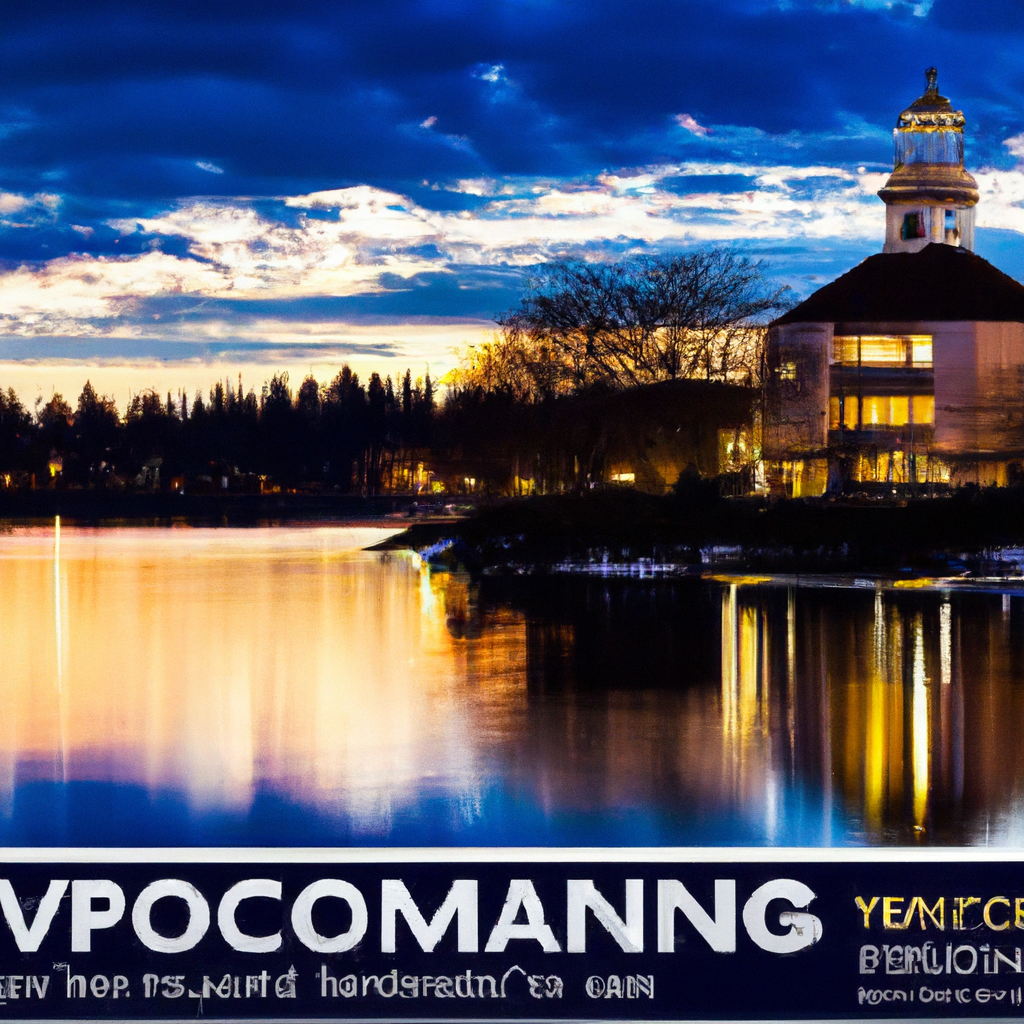
The Creation of Vancouver
Founding of Fort Vancouver
Fort Vancouver, established in 1824, was a major trading post of the Hudson’s Bay Company and played a vital role in the early settlement of the Vancouver area. Located on the northern bank of the Columbia River, the fort became a bustling hub of fur trade, agriculture, and cultural exchange between traders, settlers, and the indigenous peoples. The fort’s strategic location contributed to the rapid growth and development of the area.
City of Vancouver’s Establishment
The city of Vancouver itself was officially incorporated on January 5, 1857. The establishment of the city provided a municipal government structure that supported the growing population and allowed for the development of infrastructure and urban planning. It marked an important milestone in the transformation of the region from a trading post to a thriving city.
Explaining the Origin of the Name
The name Vancouver has its origins in the explorations of Captain George Vancouver, who charted the coastlines of the Pacific Northwest in the late 18th century. The city was named in his honor as a tribute to his contributions to cartography and his extensive surveys of the region. By adopting his name, the city symbolically connected itself to the era of exploration and discovery that shaped its early history.
Captain George Vancouver
Captain George Vancouver’s Background
Born on June 22, 1757, in King’s Lynn, England, George Vancouver was a British naval officer and explorer. He joined the Royal Navy at a young age and embarked on numerous voyages, including James Cook’s second and third expeditions. Vancouver’s experience and expertise in navigation, charting, and surveying made him well-suited for leading his own expedition.
The Vancouver Expedition
Captain George Vancouver led his own expedition to the Pacific Northwest between 1791 and 1795. His primary objective was to complete the unfinished surveys of the coastlines by James Cook’s expeditions. Vancouver meticulously charted and documented the intricate network of waterways, islands, and mountains in the region, greatly expanding the knowledge of this previously uncharted area.
Contributions to Cartography
Captain George Vancouver’s expeditions were instrumental in cartography and the detailed mapping of the Pacific Northwest. His accurate maps and charts provided an invaluable resource for subsequent explorers, traders, and settlers. His surveys not only defined the coastlines and waterways but also contributed to the understanding of geography, topography, and indigenous settlements in the Vancouver area.
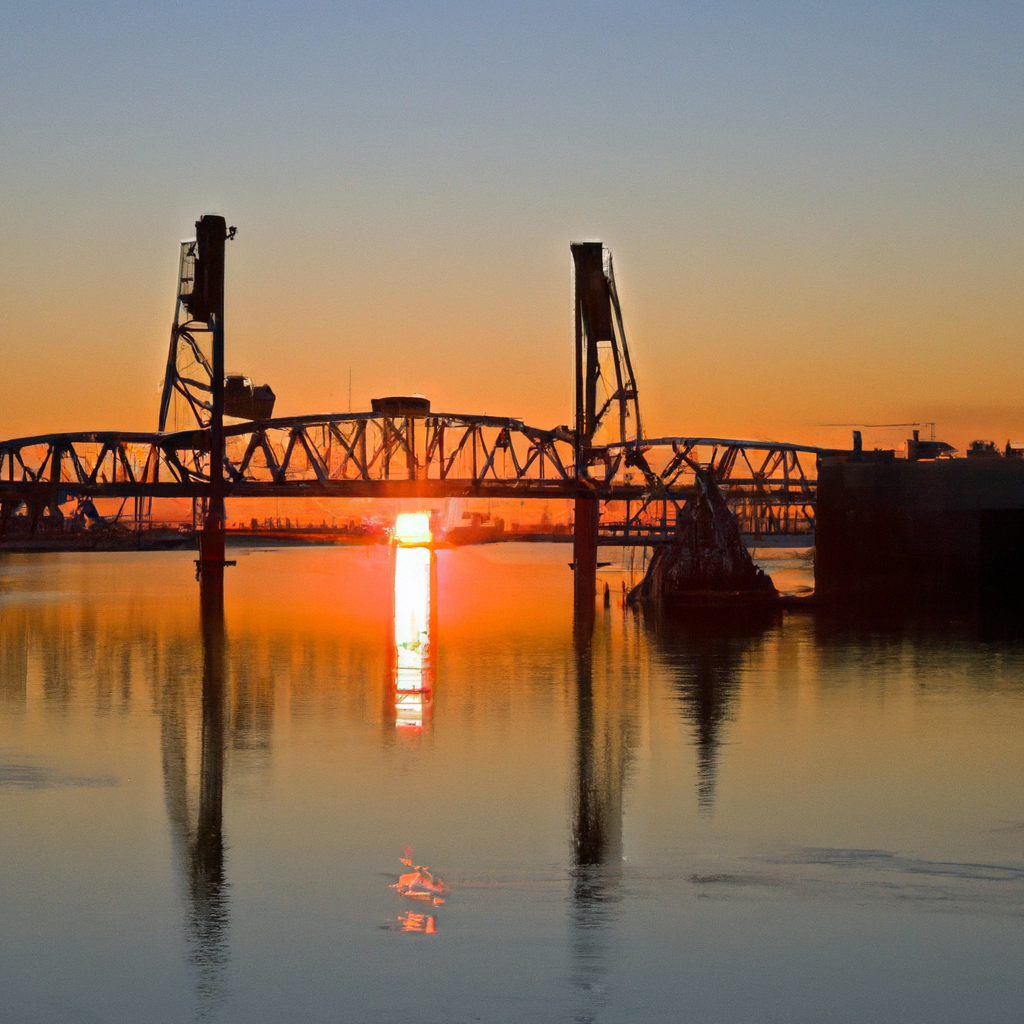
Completing the Circle
The Vancouver Connection
The city of Vancouver, Washington, shares a historical connection with its namesake, Captain George Vancouver. Although the city is located in the United States, the naming reflects the significance of Vancouver’s explorations in the entire region. It is a nod to the shared history and cultural exchange between the United States and Canada in the Pacific Northwest.
The Naming of Vancouver, Washington
When the city of Vancouver, Washington, was officially incorporated, the decision to adopt the name was influenced by the presence of Fort Vancouver and the historical significance of the area. By choosing this name, the city acknowledged its connection to the past and embraced its role as a center for trade, exploration, and cultural exchange.
The Decision to Incorporate
The decision to incorporate Vancouver as a city was driven by the need for governance and infrastructure development to support the growing population and economic activities. Incorporation provided a framework for growth, urban planning, and the establishment of essential public services. The city’s incorporation was a pivotal step in its journey toward becoming a modern and vibrant urban center.
Growth and Development
Early Development Projects
In the late 19th and early 20th centuries, Vancouver experienced significant growth and development. Infrastructure projects, such as the construction of roads, railways, and bridges, improved connectivity and facilitated the movement of goods and people. The establishment of industries, including lumber mills and shipbuilding, contributed to the economic growth and prosperity of the region.
The Impact of Railroads
The arrival of railroads in the Vancouver area had a transformative effect on its development. The completion of the Northern Pacific Railroad in the late 19th century linked Vancouver to the national railway network, opening up avenues for trade and commerce. The railroads facilitated the transportation of goods, attracted new settlers, and accelerated the growth of the city.
Population Growth and Urbanization
As Vancouver’s economy flourished, its population grew rapidly. The availability of land, employment opportunities, and favorable living conditions attracted people from various backgrounds and cultures. The increasing urbanization led to the expansion of infrastructure, the construction of residential neighborhoods, and the establishment of institutions that catered to the needs of the growing population.
Struggles and Resilience
Challenges Faced by Early Settlers
Early settlers in Vancouver faced numerous challenges during their journey of exploration and settlement. Harsh weather conditions, limited resources, and conflicts with indigenous populations presented obstacles that required resilience, adaptability, and collaboration. Despite these challenges, the determination and perseverance of the early settlers laid the foundation for the thriving city Vancouver is today.
Economic Rebirth and World Wars
The early 20th century witnessed economic transformation and rebirth in Vancouver, as the city adapted to the changing global landscape. The establishment of industries such as aluminum production and shipbuilding spurred economic growth and job creation. However, the world wars brought both prosperity and hardship, as Vancouver supported the war efforts while also facing the impact of conflicts and economic fluctuations.
Floods and Natural Disasters
Throughout its history, Vancouver has faced periodic challenges from floods and natural disasters. The proximity to the Columbia River and its tributaries made the city vulnerable to flooding, causing damage to infrastructure and disrupting the lives of its residents. However, through careful planning, engineering projects, and technological advancements, Vancouver has implemented measures to mitigate the impact of such natural events.
Modern Vancouver
City Overview and Demographics
Today, Vancouver stands as a diverse and vibrant city in the Pacific Northwest. With a population of over 180,000, the city boasts a wide range of cultural and ethnic backgrounds, contributing to its multicultural fabric. Vancouver’s geographical location, situated between the Cascade Mountains and the Columbia River, offers unparalleled natural beauty and recreational opportunities.
Economy and Industries
Vancouver’s economy has diversified over the years, with a focus on technology, health care, education, and manufacturing. The city is home to various high-tech companies, universities, and research institutions, fostering innovation and contributing to economic growth. Additionally, the abundance of natural resources, including timber and agricultural products, continues to play a vital role in the local economy.
Cultural and Recreational Opportunities
Vancouver offers a wealth of cultural and recreational opportunities for residents and visitors alike. The city boasts numerous parks, hiking trails, and waterways that allow people to connect with nature and engage in outdoor activities. The vibrant arts scene, museums, theaters, and festivals showcase the diverse cultural heritage of the region and provide opportunities for artistic expression and community engagement.
Recognizing Indigenous History
Efforts to Honor Indigenous Peoples
In recent years, there has been a growing recognition of the importance of honoring and preserving indigenous history and culture in Vancouver. Efforts are being made to increase awareness, understanding, and respect for the indigenous peoples who have called this land home for centuries. Partnerships and collaborations between the city, indigenous communities, and cultural organizations are fostering initiatives to promote indigenous art, language, and traditions.
Acknowledging the Past
Acknowledging the past and the injustices suffered by indigenous peoples is an essential step in the process of reconciliation. Vancouver is working towards building meaningful relationships with First Nations tribes, addressing historical grievances, and integrating indigenous perspectives into local governance and decision-making processes. By acknowledging the past, the city aims to create a more inclusive and equitable future for all.
Navigating Reconciliation
Reconciliation is an ongoing process that requires active engagement, dialogue, and mutual understanding between indigenous communities and the broader society. Vancouver is committed to collaborating with indigenous peoples to develop policies and strategies that empower them and recognize their rights, culture, and contributions. By nurturing partnerships and fostering a spirit of reconciliation, Vancouver aims to build a more inclusive and harmonious community.
Preserving Vancouver’s Legacy
Historical Sites and Landmarks
Vancouver is home to many historical sites and landmarks that showcase its rich heritage and tell the captivating stories of the past. Fort Vancouver National Historic Site, Pearson Field, and Officer’s Row are among the notable locations that provide a glimpse into the city’s early history. Preserving these sites and landmarks ensures that future generations can appreciate and learn from the city’s diverse and layered past.
Promoting Heritage Tourism
Heritage tourism plays a significant role in preserving Vancouver’s legacy and fostering economic growth. By promoting tourism to historical sites, museums, and cultural events, the city not only showcases its heritage but also generates revenue that can be reinvested in preservation efforts and community development. Heritage tourism allows visitors to connect with the city’s history and creates opportunities for cultural exchange and appreciation.
Community Engagement and Education
Engaging the community, particularly young people, in learning about Vancouver’s history is crucial for preserving its legacy. Educational initiatives, such as school programs, museum exhibits, and community events, provide platforms for sharing knowledge, stories, and experiences. By actively involving the community in its heritage, Vancouver ensures that its history continues to be celebrated, understood, and safeguarded for generations to come.
In conclusion, Vancouver’s history is a tale of exploration, settlement, growth, and resilience. From the indigenous peoples who first inhabited the region, through the arrival of European explorers and settlers, to the modern multicultural city it is today, Vancouver’s story is one of rich cultural heritage and continuous evolution. By recognizing the importance of indigenous history, preserving its legacy, and fostering reconciliation, Vancouver embraces its past and paves the way for a brighter future.
You May Also Like

Garrette Custom Homes | Custom Home Building in Clark County, WA
9 November 2023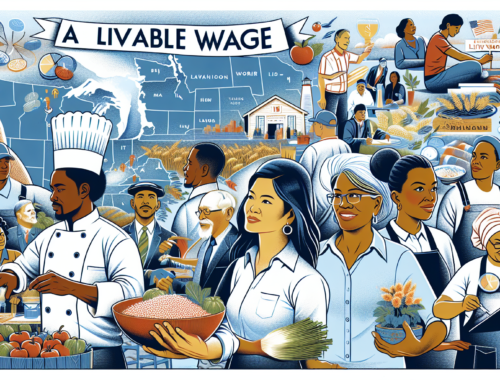
Exploring a Livable Wage in Washington State
14 January 2024